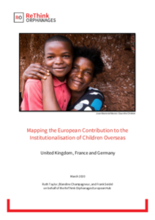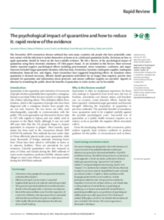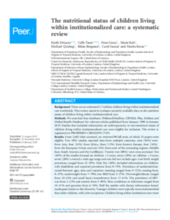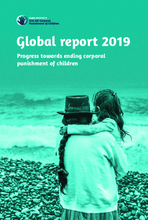Displaying 441 - 450 of 1343
Significant anecdotal evidence suggests that other countries across Europe also make a considerable contribution to the supply chain of people, money and resources that continue to sustain and foster the orphanage industry worldwide. This report seeks to map the contribution of the three countries in Europe with the largest volunteer travel markets: The United Kingdom, Germany and France.
The authors of this paper conducted a review of the psychological impact of quarantine, including the impact on children, using three electronic databases.
This article uses the framework of the CRC to review how the world has studied the involvement of child soldiers in armed conflict.
The authors of this paper systematically reviewed research on the nature of child sexual abuse interventions in developing countries, the settings and populations included to identify types of child sexual abuse prevention initiatives being implemented in developing countries and their effectiveness.
This review from PeerJ aimed to evaluate currently available data on the nutrition status of children living within institutionalized care.
The Global Initiative to End All Corporal Punishment of Children has launched the Global Report 2019, tracking progress towards universal prohibition of corporal punishment.
This systematic review of qualitative research aimed to identify and synthesise the findings of relevant studies that documented the experiences of children in care in regard to their school experiences.
The aim of this review is to describe psychosis risk factors in adoptees, with a focus on difficulties with identity formation, identification with in-groups, attachment to parents, and coping with loss and with discrimination.
This systematic review of qualitative research aimed to identify and synthesise the findings of relevant studies that documented the experiences of children in care in regard to their school experiences.
The aim of this study was to assess the evidence of the effectiveness and cost-effectiveness of Intensive Family Preservation Services (IFPS) in reducing the need for children to enter out-of-home care.




